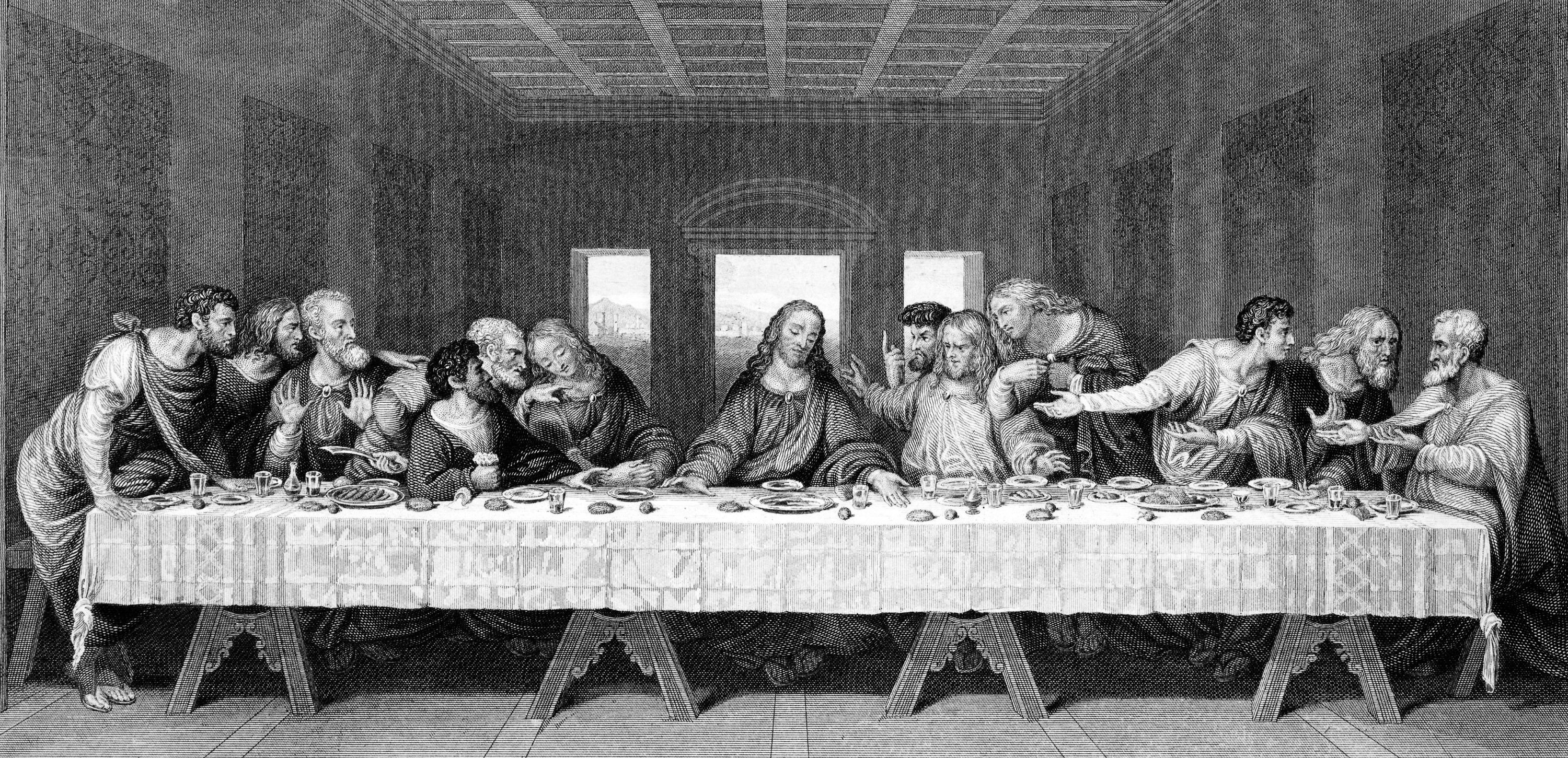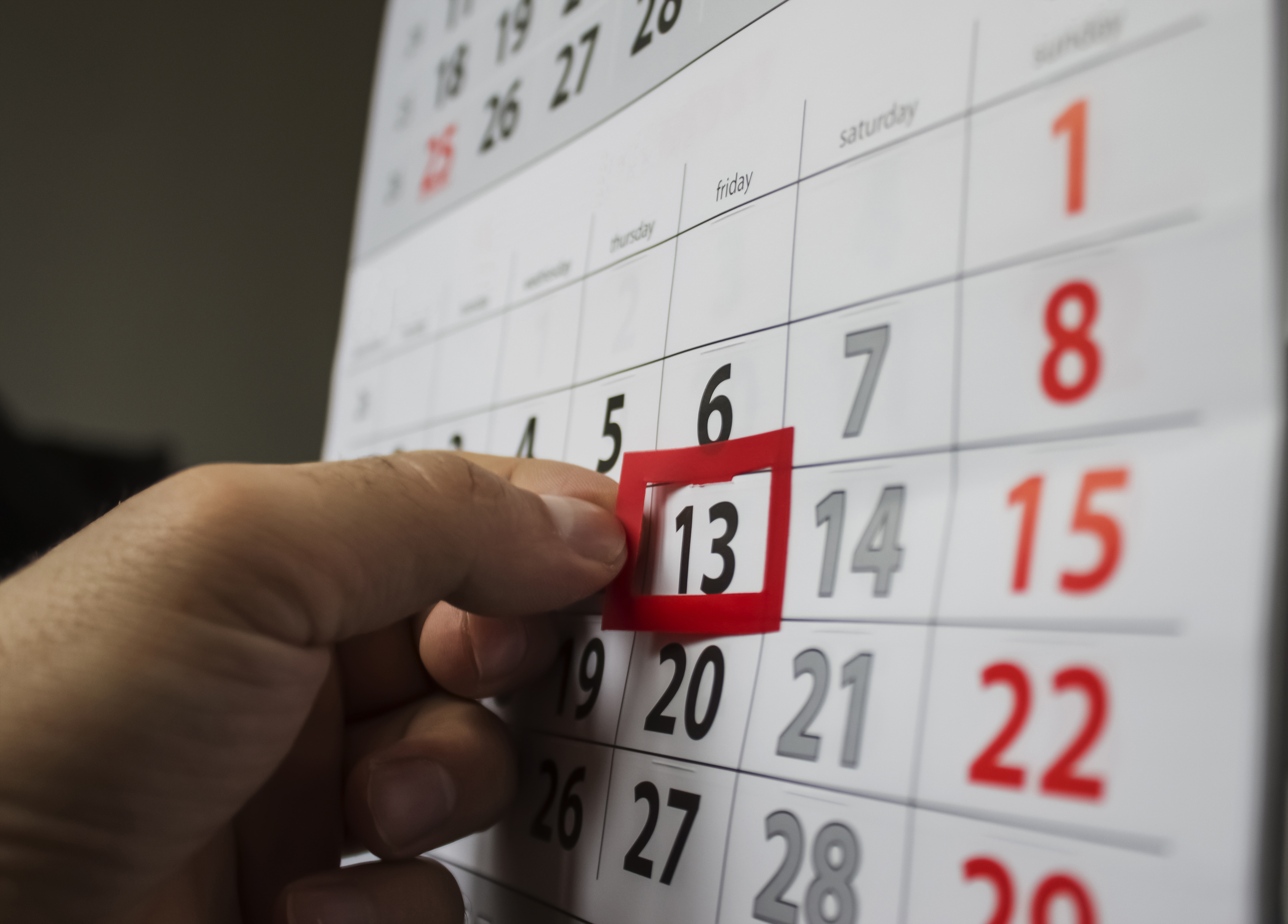Why is Friday 13th unlucky? Origins of the superstition
Here's how Friday 13th got its reputation...


Parenting advice, hot topics, best buys and family finance tips delivered straight to your inbox.
You are now subscribed
Your newsletter sign-up was successful
It's one of the most familiar Western superstitions out there - but why is Friday 13th unlucky?
There are plenty of superstitions tied to the 12 month calendar, from New Year's Day superstitions to saying 'white rabbits' on the first of the month. And just like people want to know the origins of Halloween, many are also curious to know where the luckiest and unluckiest days come from.
Friday 13th is considered by many to be the unluckiest day in the calendar, and the perception isn't helped by a whopping 12 slasher films in the Friday 13th franchise. But where did the superstition come from? Here's why Friday 13th is considered unlucky...
Why is Friday 13th unlucky?
The superstition around Friday 13th is thought to have originated from the Last Supper in the Bible. The meal, which took place the night before Jesus was crucified, was attended by 13 people - Jesus Christ and his 12 disciples.
While the number 13 is therefore associated with Judas - the disciple who betrayed Jesus - another potential origin of the superstition can be traced back to 1307, when King Philip IV of France arrested hundreds of Knights Templar on Friday 13 October.

Many of the Knights were burned at the stake, and Jacques de Molay - the grand master of the Knights Templar - is said to have shouted a curse when he faced the flames at Notre Dame Cathedral.
It is thought that this ensured every subsequent Friday the 13th meant bad luck for everyone, and there's even a word for the fear of Friday 13th - paraskevidekatriaphobia.
Parenting advice, hot topics, best buys and family finance tips delivered straight to your inbox.
Why is Friday unlucky?
Friday has been considered the unluckiest day of the week for many years. In the UK, Friday used to be known as 'Hangman's Day', because it was usually the day when people who had been sentenced to death would be hanged.
The Canterbury Tales, the famous collection of stories written by Geoffrey Chaucer, says "and on a Friday fell all this mischance".
There is one Friday that is thought to be good luck, however, and that is Good Friday - hence its name - the day of Jesus' crucifixion.
Why is 13 unlucky?
The reason for the number 13 being considered unlucky is also though to have come from the Last Supper, and it is still considered unlucky to have 13 people sat around a table.
The superstition also comes from Norse mythology, in which a dinner party of the Gods was ruined by Loki, the 13th guest, who persuaded Hoor, son of Odin, to shoot Balder, another of Odin's sons. Loki also caused the world to be plunged into darkness.

Is Friday 13th unlucky in other countries?
In Spanish-speaking countries and in Greece, it is Tuesday the 13th that is considered unlucky. In Greece, Tuesday is associated with the God of War, and the ancient city of Constantinople fell twice on a Tuesday.
In Italy, the number 13 is considered lucky, and it is Friday the 17th that people are superstitious about. This is connected to the Roman numerals for 17, XVII, which when rearranged create the word VIXI. This translates to 'I have lived', which implies death.
When is Friday 13th?
There will be two Friday 13ths in 2023, one in January and one in October. There is always at least one Friday 13th each year, and up to three in one year. There was one Friday 13th in 2022 and 2021 and two in 2020. The next time there will be three Friday 13ths is in 2026.
Video of the Week

Ellie is GoodtoKnow’s Family News Editor and covers all the latest trends in the parenting world - from relationship advice and baby names to wellbeing and self-care ideas for busy mums. Ellie is also an NCTJ-qualified journalist and has a distinction in MA Magazine Journalism from Nottingham Trent University and a first-class degree in Journalism from Cardiff University. Previously, Ellie has worked with BBC Good Food, The Big Issue, and the Nottingham Post, as well as freelancing as an arts and entertainment writer alongside her studies. When she’s not got her nose in a book, you’ll probably find Ellie jogging around her local park, indulging in an insta-worthy restaurant, or watching Netflix’s newest true crime documentary.